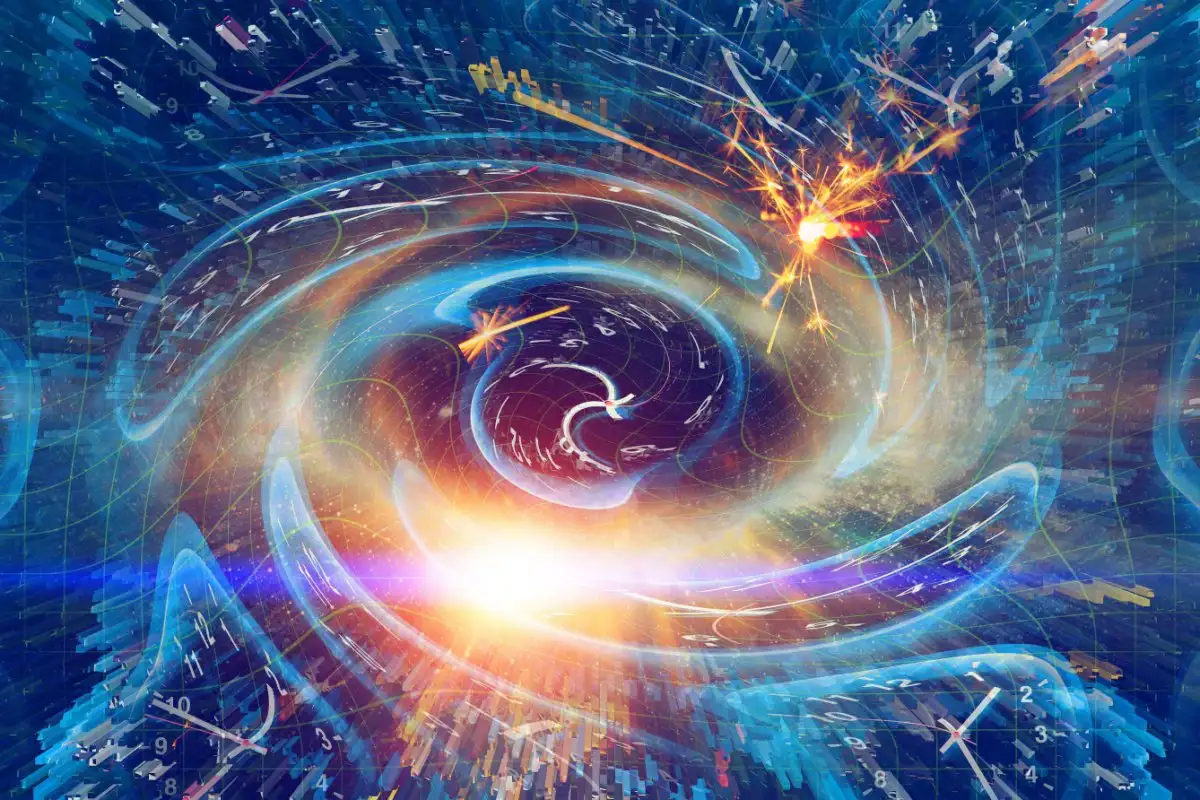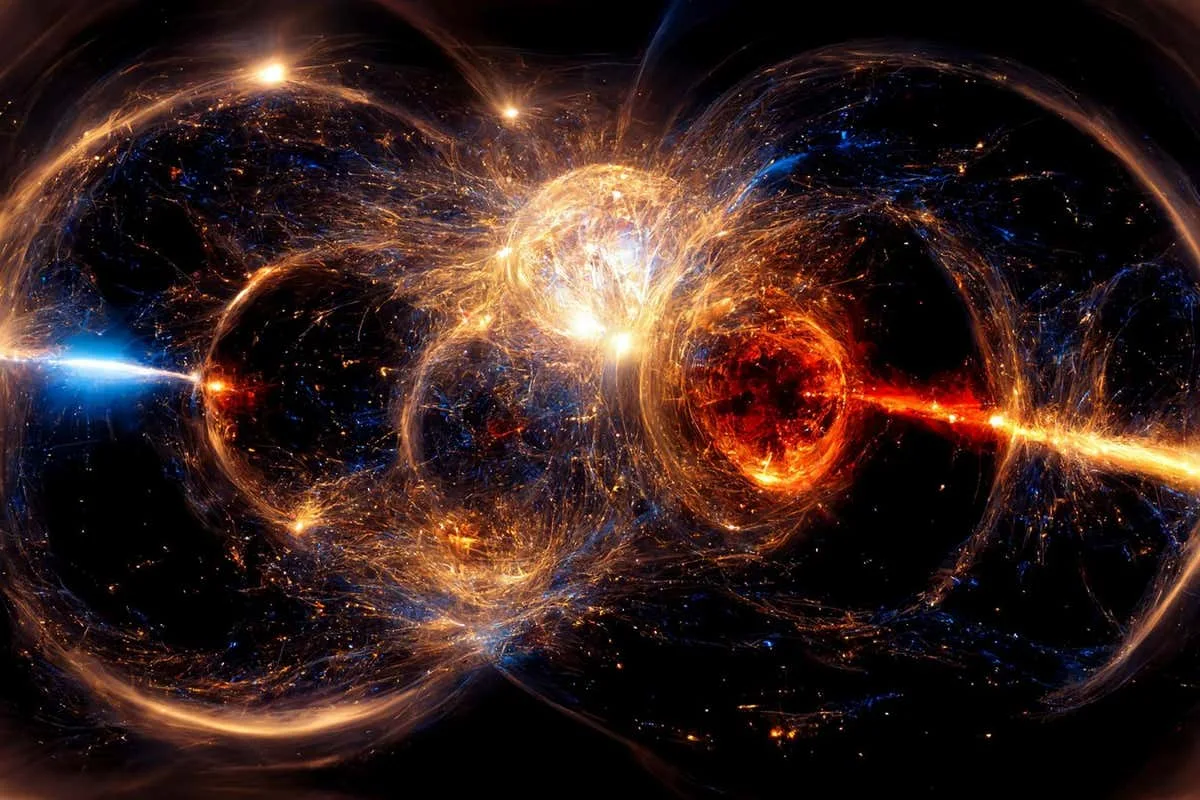A radical new hypothesis suggests that information, not matter, is the true fabric of the universe. This idea could finally reconcile black holes, dark matter and dark energy.
What if the universe were not only made up of atoms, gravitational fields or exotic particles? A recent theory suggests that everything that exists is based on pure information. Behind this mind-boggling idea, a team of researchers led by physicist Florian Neukart imagines a cosmos where every interaction leaves a trace. A kind of universal memory.
An invisible grid where space-time keeps track of everything
Called the Quantum Memory Matrix (or QMM), this hypothesis is based on a simple intuition: space-time is not a continuous fabric, but a structure composed of micro-units capable of recording information. Imagine a gigantic sheet of graph paper, where each square retains the memory of a past particle, interaction or event. This quantum memory would not be visible, but its effects could be.
Over time, certain areas of this grid would become enriched with information, until they became ‘heavier’ than others. This informational weight would create a gravitational influence similar to that of dark matter. These regions would act as a kind of gravitational fossil, stabilising galaxies while remaining invisible.
A possible explanation for dark energy and the cycles of the universe
But the hypothesis goes even further. When these space-time cells reach their maximum storage capacity, they release a form of residual energy. This could correspond to dark energy, the still unexplained phenomenon that causes the acceleration of the expansion of the universe.
In other words, the universe would grow not because of an external force, but because its own memory becomes saturated. When this saturation is reached on a large scale, the cosmos would then enter a new cycle, beginning a phase of contraction, then expansion again. A cyclical and self-regulating model.

An idea tested on quantum computers
To move beyond mere intuition, the authors of this theory have begun testing it on quantum computers. Some simulations have already reproduced effects similar to those observed in our universe, including gravitational structure phenomena without visible matter.
If this theory is confirmed, it would not only revolutionise modern cosmology, but also our very conception of reality itself. Matter, energy, time – everything would be secondary to information as the primary essence.
A universe where everything is remembered, even the invisible
This theory resonates with other physical intuitions: black holes, for example, are suspected of storing information about the objects they absorb. Here, the entire universe would function in this way: a giant cosmic memory, perpetually recording.
This model has not yet been validated, but it opens up a fascinating perspective. What if, rather than searching for invisible dark matter or magical dark energy, we simply looked at things differently? Perhaps the universe has nothing to hide it just has a lot to remember.




